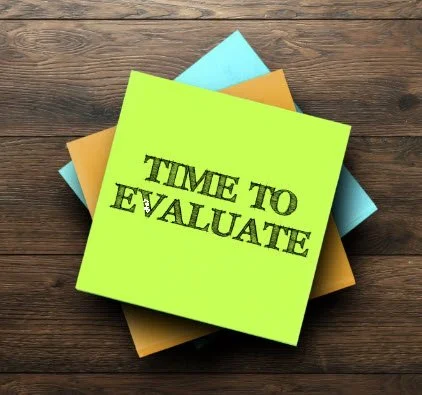Training Evaluation
Training should do more than inform—it should transform. We evaluate training by looking beyond learner satisfaction to how knowledge and skills translate into on-the-job performance. Our approach integrates all five levels of the evaluation process, starting with engagement (Level 1) and moving through learning (Level 2), behavior change (Level 3), business results (Level 4), and return on investment (Level 5).
My education and professional background in organization evaluation, children and family services, hospital, and adoption social work allow me to offer a unique level of experience in the field of grant evaluation.
Program Evaluation
Programs are often complex, involving multiple interventions, stakeholders, and phases of change. We provide a systems-level evaluation approach that captures not just if a program works but how and why. Whether you are implementing a new onboarding experience, rolling out a leadership pipeline, or integrating new performance technologies, we focus on aligning strategy, behavior, and results.
The program evaluation process involves ·
Working with program stakeholders to design and implement an evaluation framework.
Establishing feedback loops to integrate stakeholder insights into program design and delivery, fostering a culture of continuous improvement.
Developing and refining indicators, metrics, and data collection methodologies to measure program effectiveness and impact.
Overseeing data collection processes, ensuring data quality and integrity.
Analyzing quantitative and qualitative data to generate insights into performance and outcomes.
Preparing comprehensive evaluation reports and presentations to communicate findings and recommendations to program teams.
Grant Evaluation
Programs are often complex, involving multiple interventions, stakeholders, and phases of change. We provide a systems-level evaluation approach that captures not just if a program works but how and why. Whether you are implementing a new onboarding experience, rolling out a leadership pipeline, or integrating new performance technologies, we focus on aligning strategy, behavior, and results.
The evaluation incorporates three types of evaluation.
Performance Monitoring
Ensures accountability for program activities by monitoring and reporting on progress toward pre-established goals.
Formative Evaluation
Seeks to understand if the strategy, initiative, or program is being implemented as planned and managed well.
Summative Evaluation
Investigate whether the strategy, initiative, or program achieved the desired outcomes and what made it effective or ineffective.
Grant Evaluation Methods
The choice between quantitative, qualitative, or mixed methods for grant evaluation depends on the specific goals of your evaluation, the research questions you need to answer, the nature of the grant-funded project, and the resources available.
Evaluation Plan for Principles of Leadership Academy
To help a Fortune 500 company develop a process to determine if the leadership academy is successful, a process to (1) confirm the training is an added value, (2) ensure learning objectives are being met, and (3) improve the training for future participants was developed.
Quantitative Evaluation
Use quantitative methods when you need to measure the project impact in numerical terms.
Qualitative Evaluation
Use qualitative methods when you want to explore the depth, context, and nuances of the grant-funded project.
Mixed Method Evaluation
Use mixed methods when you want to gain a comprehensive understanding of the grant's impact by combining both quantitative and qualitative data.





